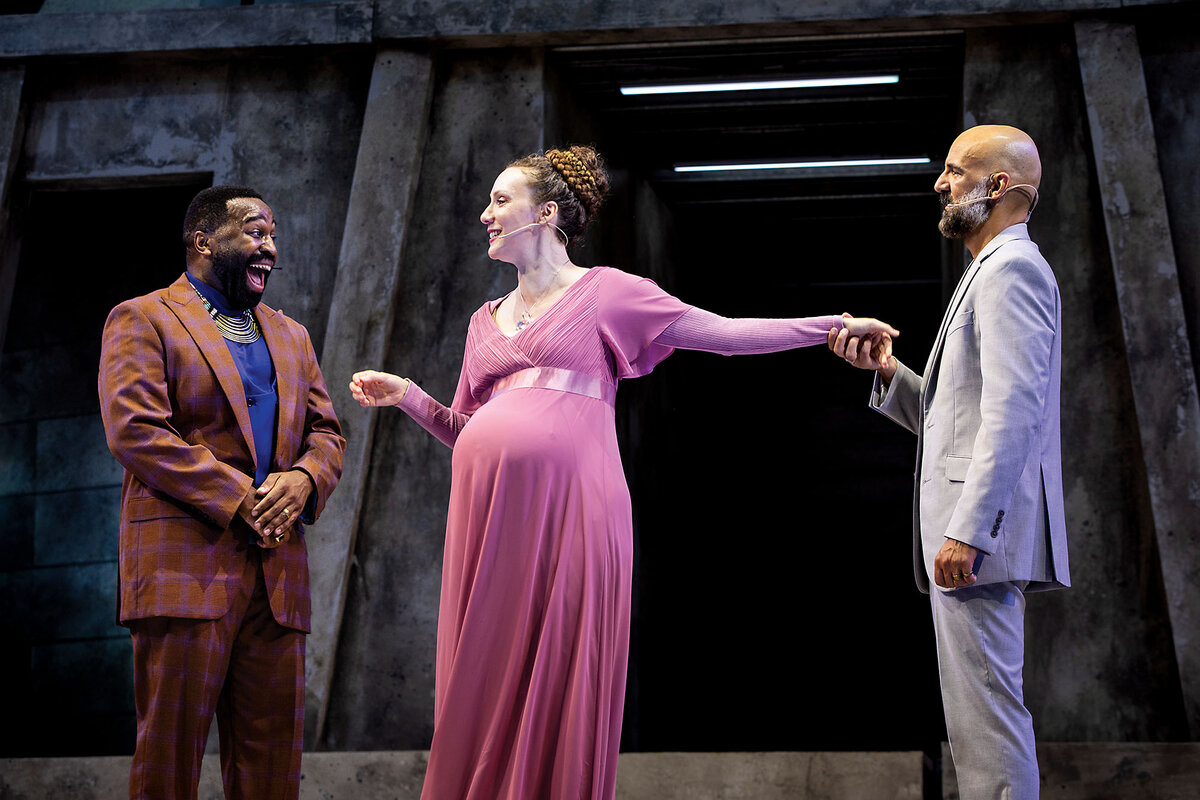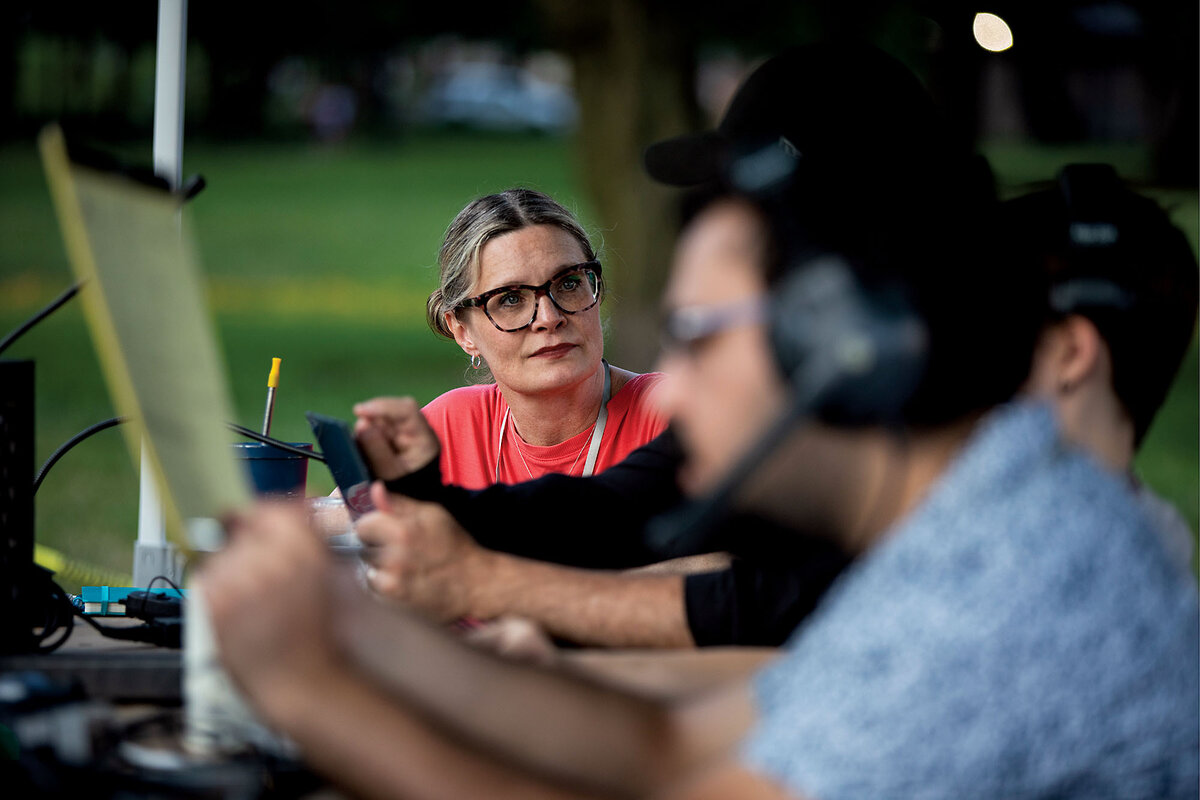In fair Boston, where we lay our scene: Free Shakespeare comes to the Common
Loading...
| Boston
Jenny Jones grabbed what were arguably the best seats in the house.
For the past 20 years, she has been bringing members of her church to Boston Common for the Commonwealth Shakespeare Company’s annual free summer Shakespeare plays. For one of the company's productions of “The Winter’s Tale” (which ran through Aug. 4), Ms. Jones arrived six hours early to secure a large enough spot on the lawn near the stage. Her fellow parishioners from St. Cecilia’s in Boston were nearby, each with picnic fare that wouldst rival the feast that Romeo doth crash at the Capulets’.
Nael Nacer, who starred as King Leontes, understands the appeal of an outdoor show for audience members like Ms. Jones and for the actors. He has performed three times on the Common with the Commonwealth Shakespeare Company and proclaims each experience “magical.”
Why We Wrote This
Shakespeare’s “The Winter’s Tale” is relatable to anyone who has experienced jealousy, loss, and redemption. Free public performances this summer made the play accessible to audiences who might otherwise never see it.
“We can often see the moon in the sky,” Mr. Nacer says, “and there’s a lot of beauty there that I’m struck by.”
The first half of “The Winter’s Tale” is its own complete tragedy. Jealousy and guilt consume Leontes, who believes he has been cuckolded. His wife and son shuffle off their mortal coils, and his newborn daughter is banished forthwith. “King Leontes believes his heart is broken,” Mr. Nacer explains. “It all comes from love.”
Where the first half of the Commonwealth company's production was bathed in somber hues – monochromatic purples, blues, and grays – the comedic second half cloaked the cast in a riot of color. “I almost feel like they have taken every colorful piece from their closet and put it on all at once,” director Bryn Boice says. “Everything goes together; nothing goes together.”
“The Winter’s Tale” is one of Shakespeare’s lesser-known works. But for Ms. Boice, it was only natural that she would choose to direct it.
“It doesn’t fit into a neat box and feels very much like life,” she says. The play’s language is “gorgeous and powerful and difficult ... and it really begs to be seen.”
For more visual storytelling that captures communities, traditions, and cultures around the globe, visit The World in Pictures.












